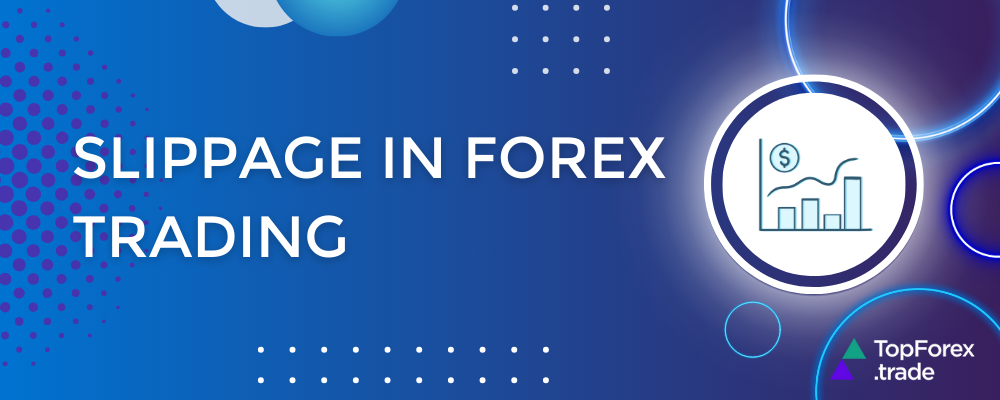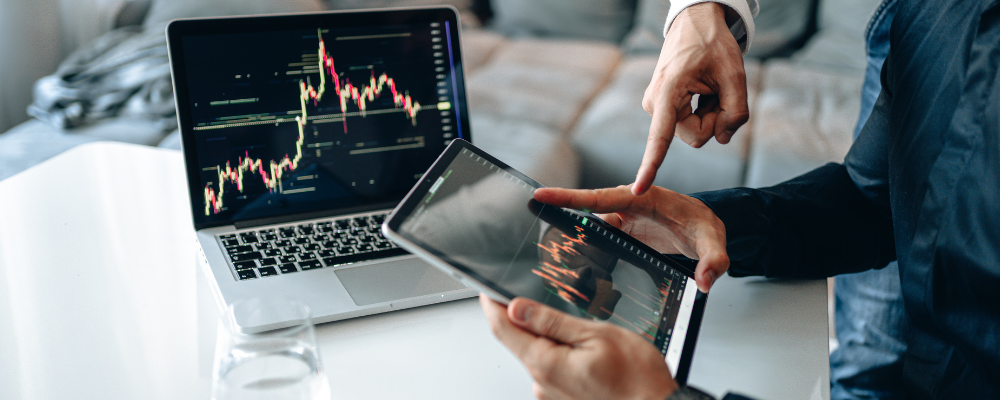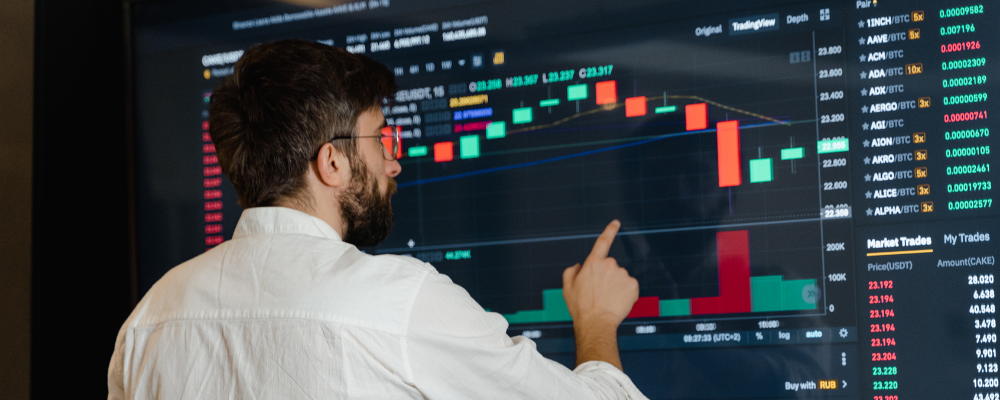Forex brokers slippage: guide to navigate and minimize impact

When it comes to Forex trading, there’s one thing that can throw even the most seasoned traders off track: slippage. That frustrating difference between the expected and executed trade prices can leave you scratching your head.
In this article, we will demystify the phenomenon of Forex broker slippage. We’ll explore what causes it and, more importantly, share practical tips to help you mitigate its impact on your trading strategy.
What is slippage in Forex trading?
In Forex trading, slippage refers to the difference between the expected price of a trade and the price at which it is actually executed. It typically occurs during periods of high market volatility or when there is a delay between placing an order and its execution. Slippage can result in traders getting a worse price than they anticipated, leading to potential losses or reduced profits.
It’s a common phenomenon in the Forex market and can occur with both market orders and limit orders. Traders often seek to minimize slippage by using various strategies, such as trading during less volatile times or using limit orders to specify the maximum price they are willing to pay or the minimum price they are willing to accept for a trade.
How does slippage occur in Forex trading with brokers?

Slippage in Forex trading occurs due to several factors, primarily revolving around market conditions and broker practices. Here’s a breakdown of how slippage happens:
Market volatility:
- Rapid price movements: During periods of high volatility, such as during major economic announcements or geopolitical events, prices can change rapidly. By the time your order reaches the market, the price may have already moved.
Execution speed:
- Latency: There can be a delay between the time you place your order and the time it gets executed. This latency can be due to the speed of your internet connection, the broker’s processing speed, or the time taken to route your order to the market.
Liquidity:
- Thin markets: In markets with low liquidity, there might not be enough buyers or sellers at the desired price. As a result, your order might get filled at the next available price, causing slippage.
Order type:
- Market orders: These orders are executed at the best available price, which might differ from the price seen at the time of placing the order, especially in fast-moving markets.
- Stop orders: These become market orders once triggered and can experience slippage if the market price moves quickly.
Broker practices:
- Broker execution model: Different brokers have different execution models. Market makers might fill orders at their own discretion, which can lead to slippage. ECN/STP brokers route orders directly to the market, which can result in slippage due to external market conditions.
- Requotes: Some brokers might offer requotes if the price changes before the order is filled, giving the trader a chance to confirm the new price. However, this can lead to delays and further slippage.
Forex slippage example

Imagine you place a market order to buy EUR/USD at 1.1000. Due to high volatility, by the time your order is processed, the price has moved to 1.1005. Your order gets executed at this new price, resulting in 5 pips of slippage.
How to minimize slippage in FX trading
- Use limit orders: Specify the maximum price you’re willing to pay or the minimum price you’re willing to accept, thus avoiding unexpected fills at worse prices.
- Trade during low volatility: Avoid trading during major news events or when markets are highly volatile.
- Choose a reliable broker: Opt for brokers with fast execution speeds and transparent practices.
- Monitor liquidity: Be aware of the liquidity of the currency pair you’re trading, as more liquid pairs typically experience less slippage.
Understanding and managing slippage is crucial for effective Forex trading, helping traders to minimize unexpected costs and improve overall trading performance.
Top Forex brokers with the lowest slippage
Choosing a Forex broker known for low slippage rates can make a substantial difference in your trading outcomes. Brokers with minimal slippage help ensure that your trades are executed at prices closer to what you expected, enhancing your overall trading strategy and performance.
In this list, we’ve explored the top Forex brokers that excel in providing low slippage rates. These brokers have proven track records of reliability, fast execution speeds, and transparent practices, all of which contribute to a smoother and more profitable trading experience. By opting for one of these brokers, you can trade with greater confidence, knowing that your orders will be executed accurately and efficiently.
BlackBull FX trading with the lowest slippage
One standout broker known for its exceptionally low slippage rates is BlackBull. BlackBull is a trusted and secure online forex broker, renowned for offering a wide range of trading instruments including commodities, currency pairs, stocks, futures, indices, and Cryptocurrencies. Regulated in Seychelles, BlackBull prioritizes the safety of its traders and provides various account types such as standard, prime, institutional, Islamic (no swap), and demo accounts for risk-free practice.
The broker supports versatile trading platforms like MT4, MT5, cTrader, Web Trader, and TradingView, along with mobile and tablet apps. BlackBull also features unique platforms like CopyTrader and BlackBull Shares, catering to different trading styles and preferences.
Committed to trader education, BlackBull provides an educational hub, webinars, and tutorials, ensuring traders have the knowledge to succeed. By choosing BlackBull or another broker with low slippage, you can trade with greater confidence, knowing that your orders will be executed accurately and efficiently, leading to a smoother and more profitable trading experience.
Exness FX trading with the lowest slippage
Another notable broker with low slippage is Exness. Exness is a trusted Forex broker offering a variety of trading instruments, including currencies, commodities, indices, and Cryptocurrencies. Traders can choose from various account types like Standard, Raw Spread, and Pro, each with different spreads, fees, and deposit requirements.
Exness provides popular trading platforms like MetaTrader 4 (MT4) and MetaTrader 5 (MT5), a user-friendly web terminal, and a mobile app known for its advanced charting tools and automated trading features.
Regulated by authorities such as the FCA, CySEC, FSCA, FSC, and FSA, Exness ensures secure and fair trading conditions. The broker excels in customer support through chat, email, and phone, offering prompt assistance. Besides, Exness offers webinars, tutorials, trading guides, and market analysis, equipping traders with the knowledge to make informed decisions and develop effective strategies.
XTB FX trading with the lowest slippage
XTB stands out as a premier online brokerage, granting access to an extensive array of financial markets, encompassing CFDs on Forex, indices, commodities, and Cryptocurrencies.
At the heart of XTB’s offerings lies the acclaimed xStation 5 trading platform, celebrated for its sophisticated charting tools, real-time market insights, and adaptable indicators. This platform is seamlessly accessible on mobile devices, empowering traders to engage in transactions anytime, anywhere.
Moreover, XTB prioritizes trader education, furnishing a wealth of learning materials such as video tutorials, webinars, eBooks, and a comprehensive knowledge base. These resources serve to refine traders’ competencies, nurturing their growth in the dynamic financial landscape. Aspiring traders can also leverage a complimentary demo account, honing their skills without exposure to financial risk.
Notably, XTB maintains a reputation for transparent pricing and competitive spreads, with commission structures tailored to individual instruments. This commitment to clarity extends to regulatory oversight, with XTB being regulated by esteemed authorities like the FCA in the UK and the KNF in Poland. Such stringent regulation underscores the firm’s dedication to safeguarding client funds and ensuring a secure trading environment.
Additionally, XTB addresses the phenomenon of slippage, a common occurrence in fast-moving markets where the execution of an order takes place at a different price than expected. By implementing advanced order execution technology and risk management protocols, XTB endeavors to minimize slippage, enhancing the overall trading experience for its clientele.
AvaTrade FX trading with the lowest slippage
AvaTrade, a globally renowned brokerage firm, stands at the forefront of the online trading industry, offering an extensive array of financial instruments. From currency pairs to commodities, indices, stocks, CFDs, and Cryptocurrencies, AvaTrade presents traders worldwide with a comprehensive suite of options.
To facilitate seamless trading experiences, AvaTrade provides a diverse selection of trading platforms, including MetaTrader 4/5, WebTrader, AvaOptions, AvaSocial (for CopyTrading), AvaTradeGo, and Auto Trading platforms such as ZuluTrade and DupliTrade.
Setting itself apart, AvaTrade boasts tight fixed spreads, commission-free trading, and flexibility in minimum account size, enhancing accessibility for traders at every level. Additionally, traders can acquaint themselves with the platform through a complimentary $100,000 demo account, fostering confidence and proficiency.
AvaTrade places paramount importance on regulatory compliance, holding licenses from esteemed institutions such as IIROC, BVIFSC, FSCA, ASIC, ADGM, FSA, and FFAJ. These licenses ensure the security and protection of client funds, instilling trust and confidence in the platform.
As a dynamic entity, AvaTrade continually evolves to meet the diverse needs of its clientele. This includes catering to both seasoned traders and newcomers through innovative features such as AvaProtect risk management, Trading Central Analytics, the Guardian Angel feedback system, Expert Advisors, and an array of automated and social trading options. These offerings empower traders to navigate the markets with precision and confidence, underscoring AvaTrade’s commitment to delivering unparalleled trading experiences.
eToro FX trading with the lowest slippage
eToro stands as a reliable trading platform celebrated for its stringent regulatory adherence and robust security protocols, fostering a secure trading environment. Endorsed by regulatory bodies like the FCA (UK), ASIC (Australia), and CySEC (Cyprus/Europe), eToro has earned acclaim as one of the most esteemed brokers in the field.
Catering to diverse trading preferences, eToro offers an extensive array of trading options encompassing Cryptocurrencies, stocks, ETFs, and CFDs, presenting abundant opportunities for both traders and investors alike. The platform boasts favorable trading conditions, including leverage, narrow spreads, and low commissions.
Accessible directly through its official website, eToro’s features are conveniently available without the necessity of additional software, ensuring a seamless and user-friendly experience tailored to traders of all proficiencies.
Related articles:
Slippage in Forex trading - FAQ